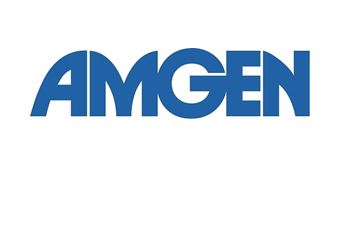Mixed reviews for Amgen's KRAS drug after lung cancer data reveal

Eagerly awaited trial data from Amgen’s latest KRAS-targeting cancer drug AMG 510 emerged over the weekend – and the results have received broadly positive reviews.
The results from a phase 1 trial caused a stir in June at the American Society of Clinical Oncology (ASCO) annual conference because it was the first time that a KRAS-targeting cancer drug had produced results in a clinical trial after years of trying.
Amgen’s drug works by targeting a subtype of KRAS mutations known as G12C and other pharma companies including Novartis and Boehringer Ingelheim are following suit and researching medicines for the mutation present in many cancers that was previously considered “undruggable”.
Further results from the phase 1 trial announced on Sunday at the World Conference on Lung Cancer in Barcelona are from a very small patient group and should be interpreted with caution.
Data is from an additional follow-up in a group of patients with non-small cell lung cancer (NSCLC) from the same trial, which investigated AMG 510 in a range of solid tumours expressing KRAS.
From the 34 NSCLC patients enrolled on the trial, 23 were evaluable for efficacy – building on the tiny sample of only three NSCLC patients included in data unveiled at ASCO.
Of the 13 patients receiving the highest dose of 960 mg once daily, seven (54%) achieved a partial response at one or more timepoints and six (46%) achieved stable disease, for a disease control rate of 100%.
This perhaps demonstrates why phase 1 data are so difficult to interpret, as the response rate in the three NSCLC patients announced in June was 100%.
While the efficacy data suggests that the drug may have limitations, it does seem to be well tolerated – in the 34 NSCLC patients enrolled, there were no dose-limiting toxicities and no adverse events leading to discontinuation, with 27 patients still on treatment at follow-up.
Of the 34 patients, only nine (26.5%) reported treatment-related adverse events (TRAEs) of grade 1 or 2. Three patients reported grade 3 TRAEs (anaemia and diarrhoea). There were no grade 4 or higher TRAEs.
The view of doctors discussing the data on twitter at the lung cancer conference was broadly supportive, and further figures from AMG 510 will be announced at the European Society for Medical Oncology (ESMO) 2019 Congress at the end of the month.
https://twitter.com/StephenVLiu/status/1170619489274204160
https://twitter.com/StephenVLiu/status/1170621056740147202
Amgen has also moved patients into an expansion phase combining AMG 510 with a PD-1 blocking immunotherapy.
There’s also a phase 2 study that could lead to a filing with the FDA under way, and Amgen is also looking at other combinations as the interest in this treatment approach intensifies.












